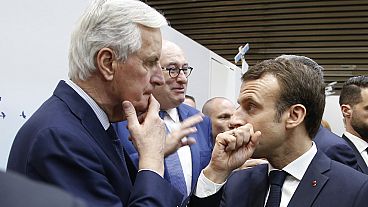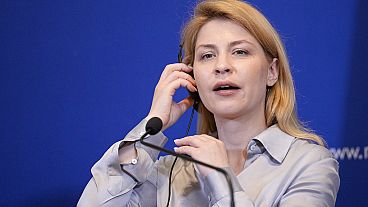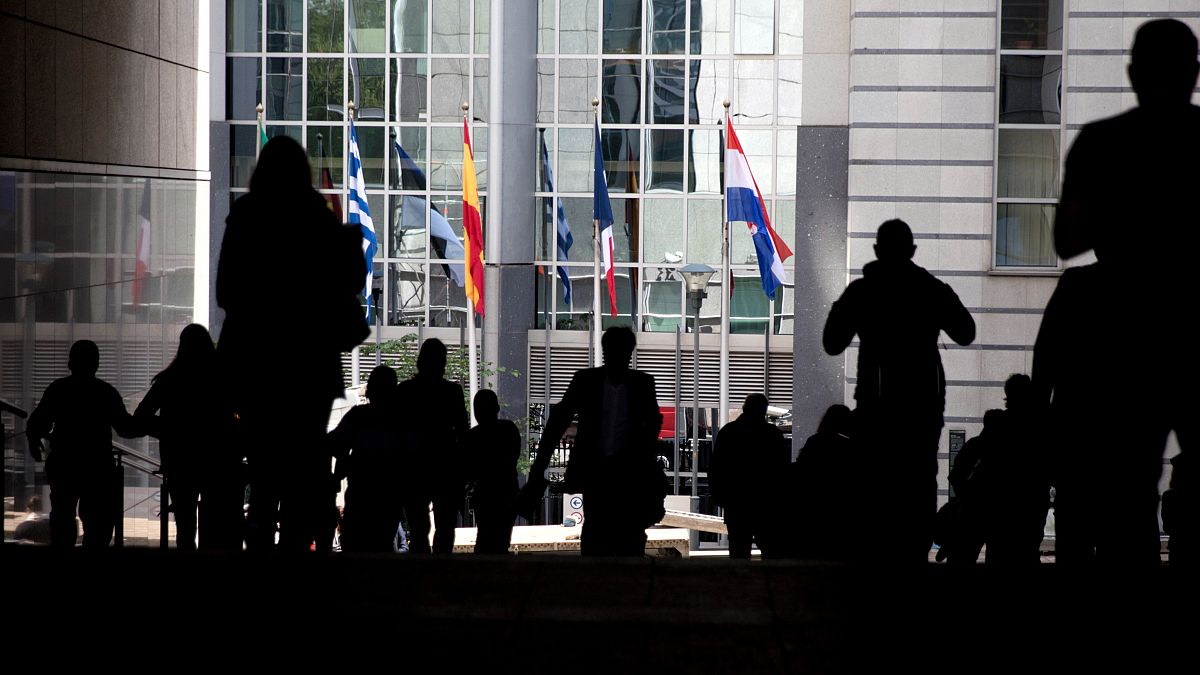From mammoth structures for energy and the environment to smaller ones looking at fish, we take you through the movers and shakers who will determine EU lawmaking in practice.
The EU’s headline top jobs are out – and now the European Parliament is starting to get to grips with its more detailed structures that actually redraft EU laws.
The Parliament’s 24 committees prepare most of its work, allowing the monthly plenary session to rubber-stamp issues that already command consensus and focus on big political controversies.
Committees are also responsible for the nitty-gritty of legislative work from tech policy to agriculture, and in the autumn will grill and, perhaps, approve the 26 individual commissioners who’ll be appointed to work under Ursula von der Leyen.
From behemoths of 90 members each dealing with the environment and energy, to smaller panels of 25 covering fish or legal affairs, their make-up is broadly proportional to EU election results.
Each is dominated by the centre-right European People’s Party, but no grouping has a majority. And, as is traditional, the most coveted committee appears to be one where the Parliament has fewest powers – international policy.
Big beasts
In the next term, the Parliament's foreign affairs committee will boast big political beasts, including ex-Prime Ministers Elio di Rupo of Belgium and Andrius Kubilius of Lithuania, according to a roster now published by the Parliament.
The foreign affairs committee will likely continue to be chaired by the German EPP MEP David McAllister, who’s held the post since 2017.
He’ll have to manage some major political rivals – including leading French socialist Raphaël Glucksmann, Jordan Bardella, from Marine Le Pen’s National Rally, and Le Pen’s niece Marion Maréchal, who sits in a different far-right grouping.
There’ll be other clashes in significant committees, including the Civil Liberties committee, which covers the controversial area of migration policy.
LIBE meetings will see Fabrice Leggeri, the extreme right-winger who formally ran the EU’s border agency Frontex, and Jorge Buxadé Villalba of the Spanish far-right Vox pitted against liberal Belgian ex-Prime Minister Sophie Wilmès.
Influencing EU green laws will be Vytenis Andriukaitis, a former EU Commissioner who now sits on the environment and public health committees, and Poland’s Beata Szydło, from the hard-right Law and Justice party, who will deal with industry, research and energy policy. (Her predecessor as PM, Ewa Kopacz, will also sit on the environment committee).
Where’s Fidias?
The economic and monetary affairs committee – which drafts financial service laws while holding central bankers to account – sees many returning faces, including financial-services stalwart Markus Ferber, from the German EPP, and former competition lawyer Stéphanie Yon-Courtin from France.
Spain’s Jonás Fernández, who previously led a significant reform of EU bank-capital rules, will be socialist lead in the Committee, his party announced.
Italy's Irene Tinagli will still be there – but is likely to lose her spot chairing the committee to French socialist Aurore Lalucq.
Poking holes in the EU’s economic plans from the sidelines will be left-winger Fabio de Masi, from Germany’s Sahra Wagenknecht Alliance, and Fidias Panayiotou, the Cypriot influencer who has more than 2.6 million subscribers on YouTube.
The EU’s internal market committee, which led a number of tech laws including legislation on AI and digital services, sees many returning faces including Danish socialist Christel Schaldemose, and Andreas Schwab, from the German EPP.
Adina Vălean, who resigned her post as Romania’s EU Commissioner to become an MEP, will also sit on IMCO, which also covers consumer protection rules.
And big tech is getting its foothold too. Dóra Dávid, from Péter Magyar’s Tisza party in Hungary who was previously Meta’s Associate General Counsel, will also join IMCO, while Aura Salla, previously the social media giant's public policy director in Brussels, will head to the economics committee.
Committees will meet for the first time next week in Brussels – but their status is still subject to change. Two subcommittees on public health and defence are expected to be upgraded to full committee status in September, given the extra prominence given by the pandemic and Ukraine war.












